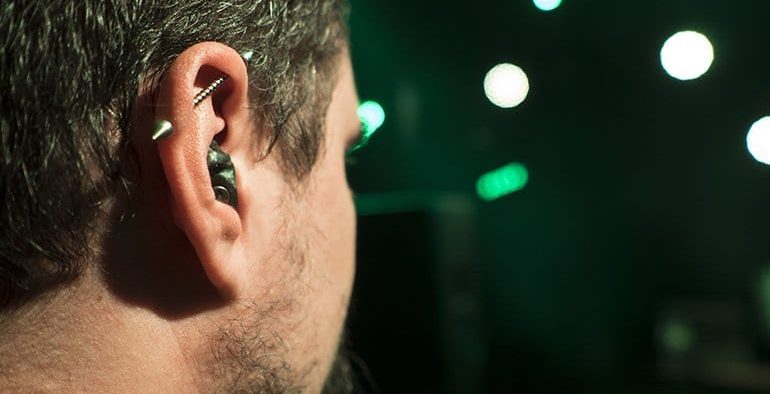Hearing Protection for Musicians: What are their Options?
Share

Musicians create art that significantly affects lives. They use their auditory system to create art with sound. But, their live musical performance, as well as the volume and length of time they play music can cause permanent hearing injury to them. Indeed, they are more likely to develop music-induced hearing loss and tinnitus than others. However, they don’t have to stop their craft. Fortunately, there are many hearing protection solutions for musicians and even fans available these days. These include the following:
Musician’s Earplugs
Musicians use earplugs to protect their hearing against music-induced hearing loss and tinnitus. Although cheap foam earplugs are widely available, they can distort the sound. But, high fidelity filtered earplugs are now available designed to lower sound evenly across frequencies to make music sound more natural. Also, a lot of concert-goers use custom earplugs to prevent hearing injury. Audiologists can give the right recommendation that suits a person.
In-Ear Monitors
These devices can provide many auditory benefits when used correctly. They provide a solution to the volume issue and poor sound quality that takes place on stage when using wedge-shaped floor speakers. Musicians should not hear themselves over competing sound sources, making it difficult to regulate speaker volumes. In-ear monitors are Audiologie Centre Ouest protection auditive.
that can be custom-molded to the ears, providing a better fit and enhanced sound isolation. Also, they have improved pitch perception, more consistent sound quality, and portability from venue to venue.
Decibel Metres
As sound travels in waves, measuring them on a standard scale can be difficult. Sound levels are measured in decibels (dB). Decibel metres let musicians visually see volume levels when they rise and fall. In turn, this alerts them to unsafe volume levels. These devices can be accessed through smartphone applications.
Annual Hearing Test
Musicians must submit themselves to annual hearing tests to prevent hearing injury. Comparing thresholds year after year allows them to know if they are keeping their first instrument safe. By working with an audiologist, musicians can track any hearing deterioration that can change hearing protection approaches. Also, research claims that musicians with hearing disorders use hearing protection more frequently than people who have not experienced any problems.
Visiting an audiologist regularly can benefit anyone. Because the music industry is not regulated or protected by sound safety regulations, musicians must have an audiologist to contact. The right audiologist has the expertise to choose the best hearing protection for every musician.


















Social Media